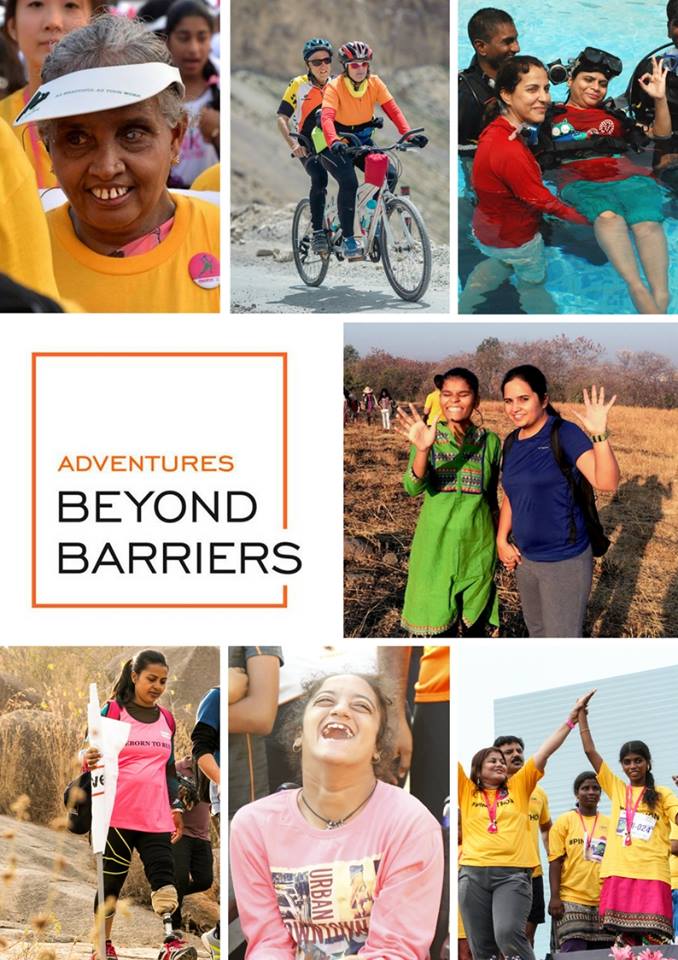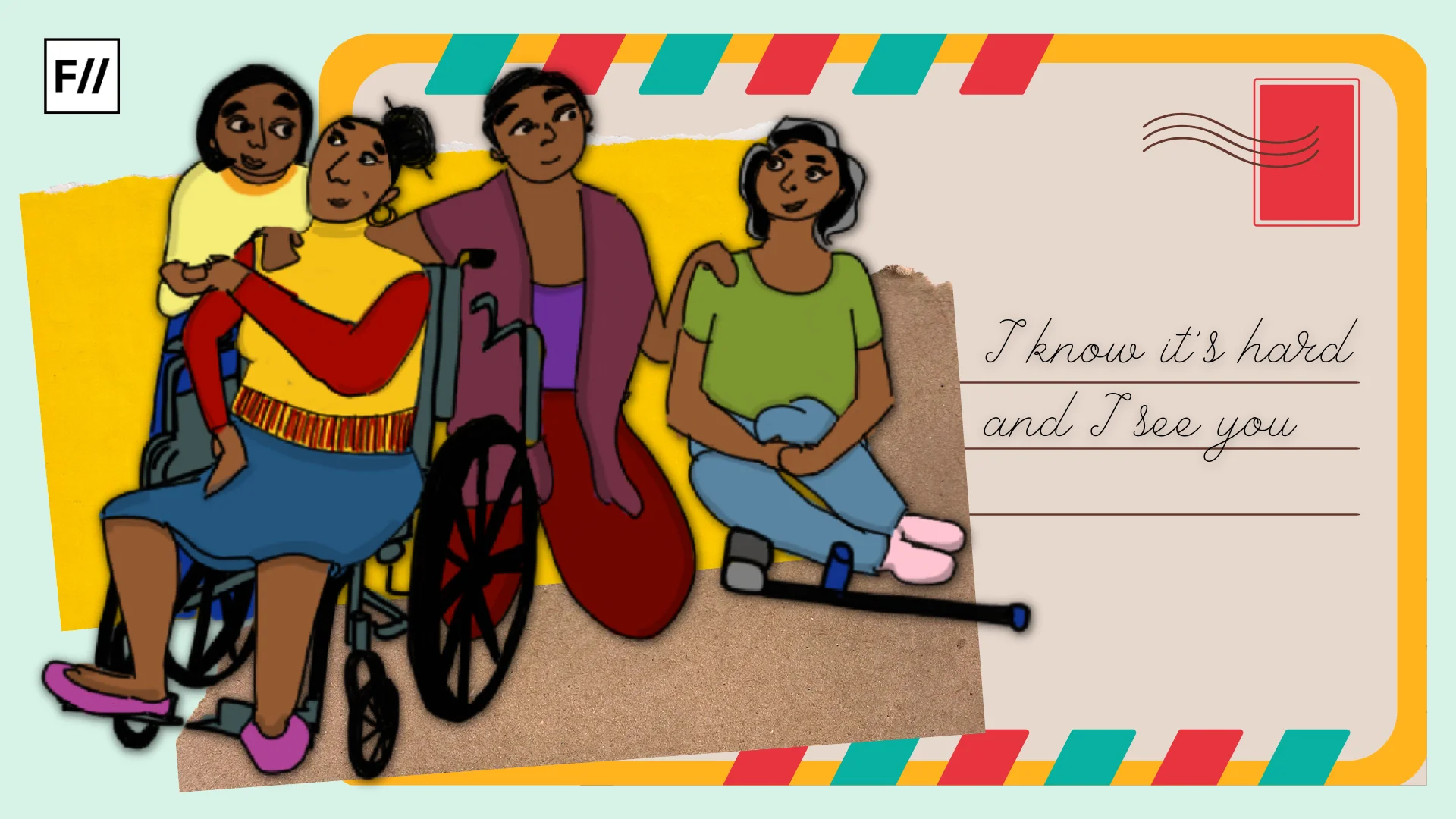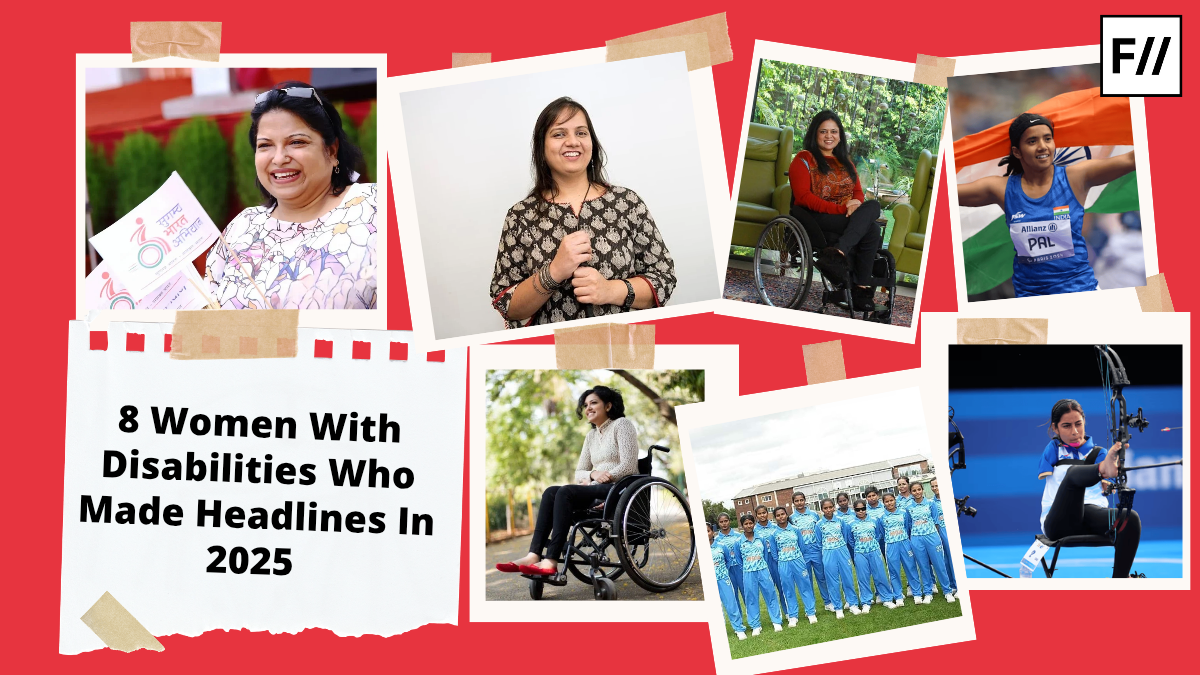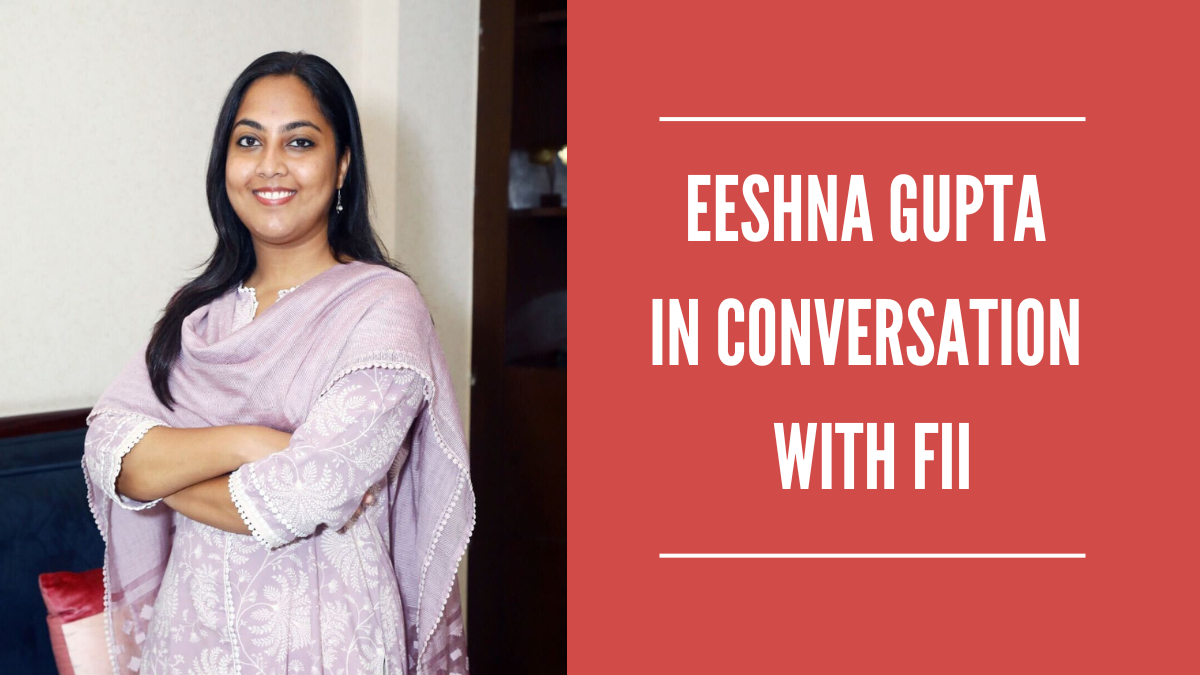Adventures Beyond Barriers Foundation (ABBF) is a non-profit organisation that strives for an inclusive society by breaking the common stereotypes and misconceptions about people with disabilities (PwDs). Through adventure and sport activities, they provide a platform for people, with or without disability, to come together and embark on an adventurous journey. Paragliding, marathons, trekking, scuba diving and mountaineering – ABBF has done it all.
We had a wonderful opportunity to interview the organisation and learn how Adventures Beyond Barriers Foundation smashes the stigma around disability.
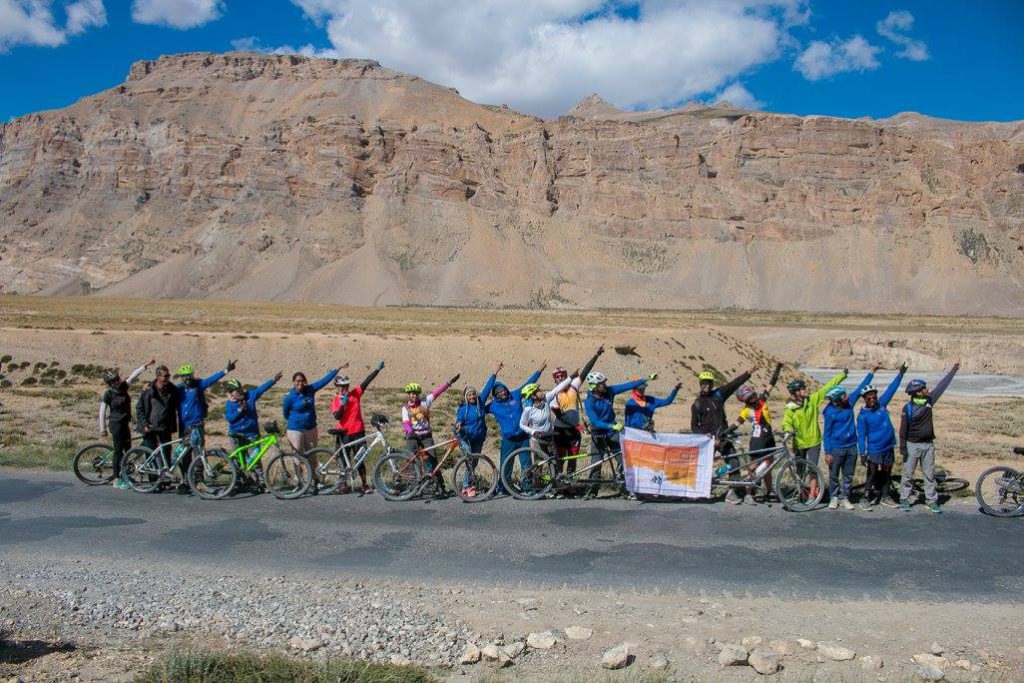
Image Source: ABBF
Prerna Singh: What was the driving force behind this organisation? Why were sports and adventure activities chosen as a means to break the stereotypes around disability?
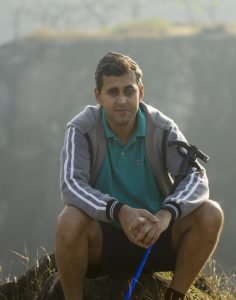
Image Source: ABBF
ABBF: ABBF’s founder Divyanshu and his story is the driving force behind this organisation. When he was 19, he lost his eyesight to glaucoma. Since childhood, he dreamt of paragliding. Also, when he was younger he used to travel solo quite a bit in the mountains and as a teenager he enjoyed trekking and being outside in nature. Cycling is also something he really enjoyed.
He spent three years adjusting to the new lifestyle, and he realised he still wanted to end up ‘flying’, some day. For seven years he looked for paragliding instructors who could teach him how to fly. Of course, most of them didn’t agree because they didn’t believe that a blind person can fly solo. He eventually found Temple Pilots, who are into paragliding and it was basically due to their support and help that he learned paragliding and took his first flight. He became the first blind Indian to para glide solo. That was the beginning of ABBF.
This experience changed him – his identity was not just of a blind person anymore. He realised that he was privileged and wanted adventure sports accessible to other PwDs around the country.
PS: How exactly is ABBF’s motto of ‘Come. Play. Grow.’ implemented? How does this motto captures the essence of the organisation?
ABBF: When we provided opportunities to PwDs to explore outdoors and nature, in form of adventure activities, we realised that a lot of barriers these people face are actually social and attitudinal barriers, due to various stereotypes, misunderstandings and false depiction in the media. We wanted to challenge that by involving abled-bodied people.
That is why we say ‘Come.Play.Grow’. Basically, we are inviting abled-bodied people to come and experience something new and experience the world differently by pairing up with a PwD and going on an adventure together. That adventure could be anything, from scuba diving, to trekking, to running marathons.

Image Source: ABBF
PS: Since the organisation provides opportunities to people, with or without disability, what is the kind of relationship or environment that develops between the participants? Does this provide as a tool for warding off misconceptions around disability?
ABBF: Yes, definitely. For example when we have marathons, we have people calling us up and asking how slow do they have to run, if they are running with a blind person for instance. When we ask them what is their best timing for a 10 kilometre marathon, it is usually around 1 hour 10 minutes, and actually most of them don’t even qualify because our blind runners complete the 10 kilometre marathons in 50-60 minutes. That is a first because from the moment they sign up, it’s just an experience where a lot of ideas they had about PwDs are shattered.

Image Source: ABBF
We call abled-bodied people joining us ‘allies’ and not ‘volunteers’, because we believe that this is done as a team. It’s a two way exchange and it is a conscious effort we make to not to use the word ‘volunteer’.
So, when people sign up as an ally, we also orient them because there are usually a lot of doubts and discomfort among people. We tell them that they will work as a team and then they basically get to interact with PwDs. The whole idea is to create an environment where they get comfortable with each other, and it helps a lot in breaking stereotypes and misunderstandings about disability.
PS: How do the able-bodied people, participating in the adventure activities, help in creating a safe and an accessible environment for the PwDs? What is the extent of their role in breaking misconceptions around disability and harbouring a more inclusive society?
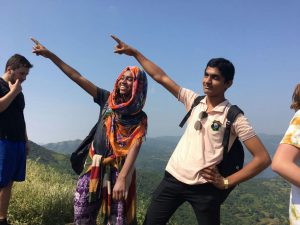
Image Source: ABBF
ABBF: The people who participate in various kinds of adventure activities are architects, doctors, IT professionals, teachers among others. During the conversations they have with PwDs, they learn, for example, that blind people can use computers. So if someone is working in the Human Resource department of a company, they can also hire PwDs they meet.
These professionals learn about the potential and interest of PwDs and various barriers they face, and try their best to cater to the skills of PwDs. They get educated about disability through conversations and participating in activities with PwDs.
PS: Out of all the sports and activities undertaken by ABBF, which has the largest number of participation? What are the measures you take while organising these adventure activities?
ABBF: Just because of the nature of the sport, running is definitely on top. We have had up to 300 runners at a marathon, to just having 10 PwDs participating in scuba diving. So the numbers really vary depending upon the activity. But yes, marathons have the largest number of participation.
As far as measures are concerned, for marathons, trekking, and cycling we have skilled people whom we have trained. For paragliding and scuba diving we have certified instructors with whom we tie up. We then adapt the sport to each disability, because every disability has a different requirement.
Safety is our number one priority, and we don’t cut corners there, even if it means that we have to limit the number of participating members.
PS: I read about Manasvi, a 14 year old girl who became the first blind girl to cycle from Manali to Khardung La, on your website. Can you share similar success stories and how ABBF has catered to the interest and abilities of PwDs?
ABBF: One of our success stories is of Amol, who is a 24 year old blind man. He ran his first marathon with us, which was a 21 kilometre half marathon. We don’t organise our own marathons. We participate in larger marathons, and we have our participants (PwDs) running there in the opening category, with the allies.
So Amol and his partner came first in his first marathon and he was given a medal and a trophy. A year later he was ready to apply for jobs. He got a job at Mumbai Municipal Cooperation who hired him when he told them about the half marathon and showed them the medal and the trophy. The company provided Amol with housing and he now supports his family who moved with him to Mumbai.
We partner with corporates and they hire PwDs by meeting them through our programmes. There was a guy, Anil, who went for a trek with us and he got hired by one of the companies.
PS: Can you tell us ABBF’s future goals and steps for creating an inclusive society for PwDs?
ABBF: For future, we are going to start a fellowship programme for PwDs. We come across a lot of people with disabilities who have a lot of potential but we realise that we need to work with them and support them in a more holistic manner.
We realise that right now we are the only one in the country doing this. So we want to start training instructors, whether they are into trekking or cycling, on how they can undertake these activities along with people with disabilities.
Also read: In Conversation With Manasi Joshi: The Para-Badminton Champion
FII thanks Adventures Beyond Barriers Foundation for taking out time from their busy schedule to answer our questions. Follow them on Facebook, Twitter, Instagram and Youtube.
Featured Image Source: ABBF Facebook
About the author(s)
Prerna is a history undergrad student who spends most of her time reading, dancing and arguing why everyone should be a feminist.
